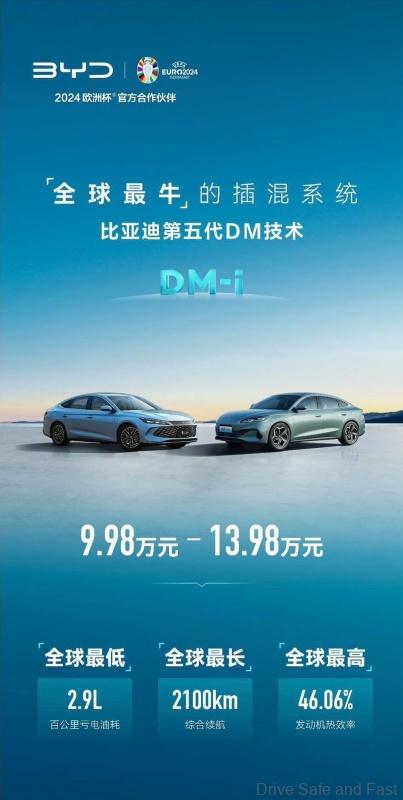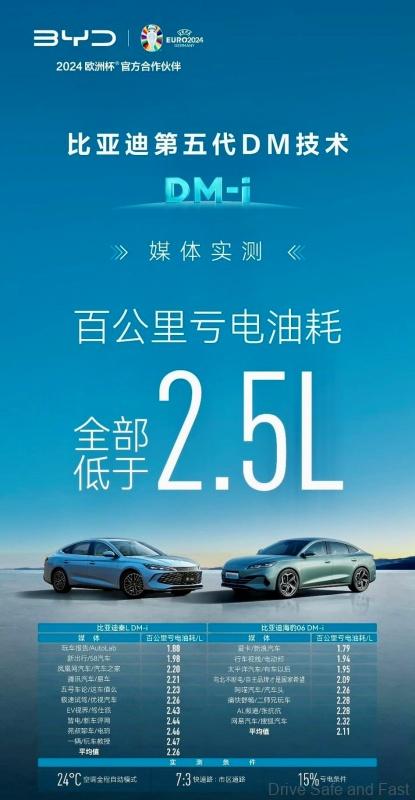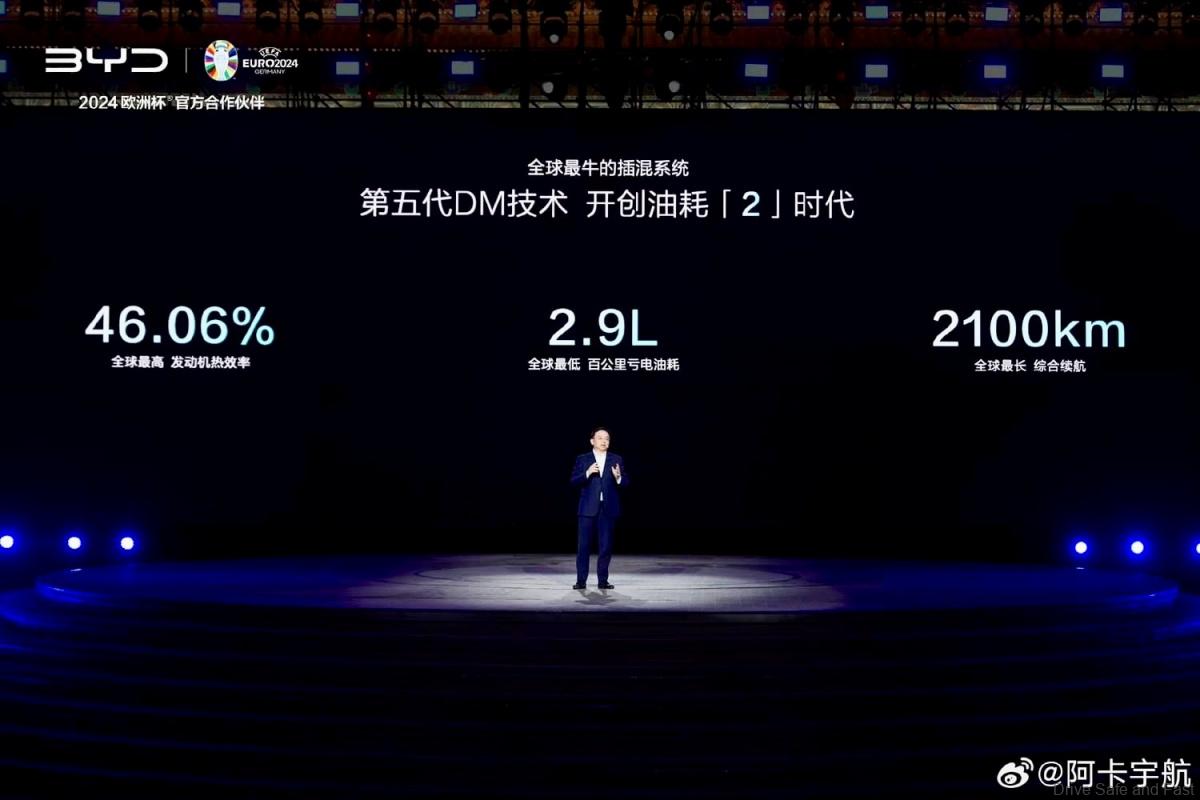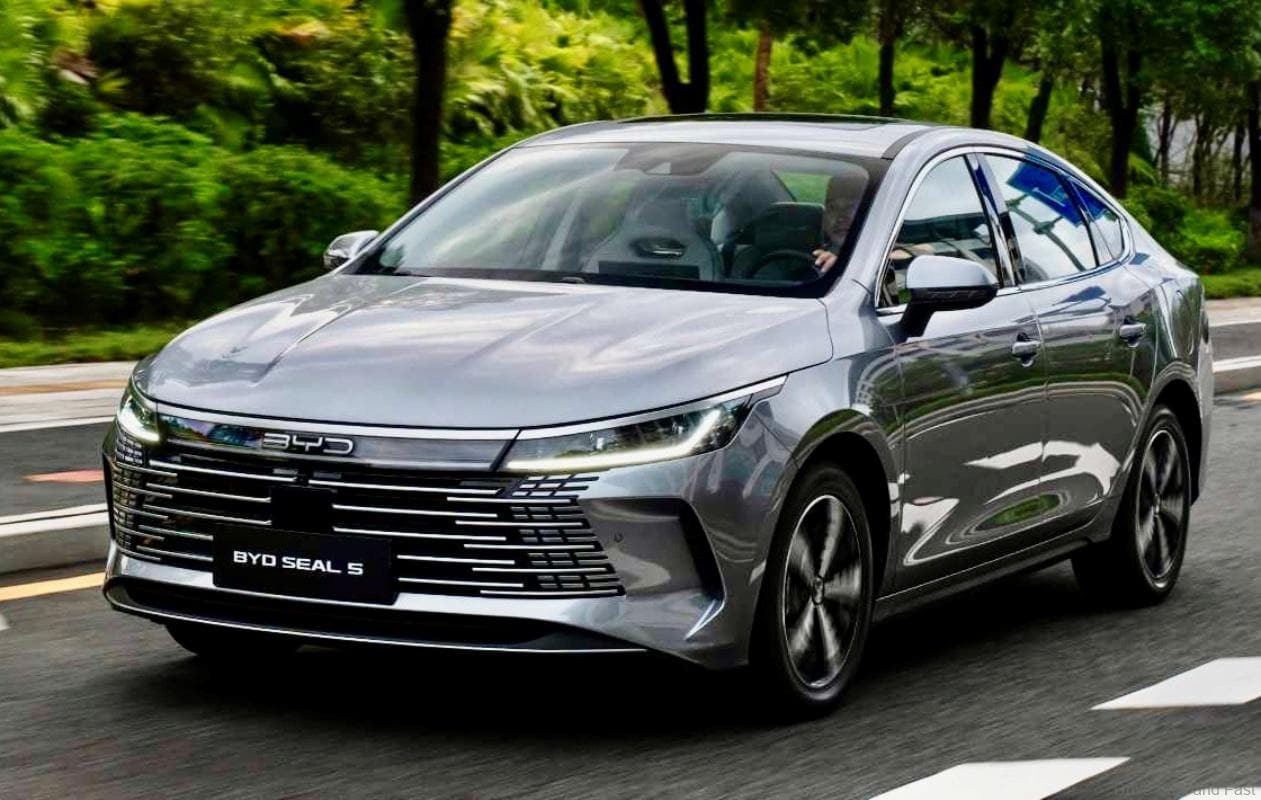BYD claims this new hybrid only needs 4 or 5 refuellings a year for 10,000km of driving
China’s BYD recently launched the latest iteration of its plug-in hybrid technology aiming to enhance fuel efficiency and cost savings, thereby intensifying competition with traditional automakers like Toyota and Volkswagen, which still primarily sell petrol vehicles.

BYD’s chairman, Wang Chuanfu, introduced the fifth generation of this hybrid technology at an event in Xian, Shaanxi province. This new technology sets a record low fuel consumption of 2.9 litres per 100km when the batteries are depleted. With a fully charged battery and a full tank, the technology can deliver an impressive driving range of up to 2,100km, according to Wang.
Moreover, alongside this technological launch, BYD introduced sedan versions of its Qin L and Seal 06 models, both featuring the new hybrid system and priced from 99,800 yuan (about RM64,541). The company estimates that customers using this new technology can save up to 9,682 yuan (about RM45,363) annually in fuel costs.

BYD’s previous generation of plug-in hybrid technology, which offered a driving range of several kilometres on electric power alone and a fuel consumption of 3.8 litres per 100 kilometres on gasoline, has significantly contributed to the company’s rapid growth since 2021. Models like the Qin Plus DM-i sedan and Song Plus DM-i SUV have benefited from this technology.
On top of that, in the first quarter of this year, BYD reduced the prices of its plug-in hybrids by 10 to 22 percent. Models like the Qin and Song have outperformed gasoline models such as Lavida and Sagitar in the mass market, appealing to cost-conscious Chinese consumers with their lower prices and superior fuel efficiency.

On the global stage, BYD is accelerating its international expansion but still lags behind multi-branded automakers like Toyota, Volkswagen, General Motors, and Stellantis in overall sales. Nevertheless, BYD and other Chinese EV manufacturers are increasingly challenging Japanese automakers in overseas markets such as Southeast Asia, Australia, and the Middle East.
In a parallel development, Toyota showcased its next-generation engines on the same day, highlighting compatibility with alternative fuel sources such as e-fuels and biofuels to reduce carbon emissions. These new engines aim to transform vehicle design, enabling lower hoods and enhanced aerodynamics.

We got all this from Reuters and their full article is linked here. Thank you Reuters for the information and images.